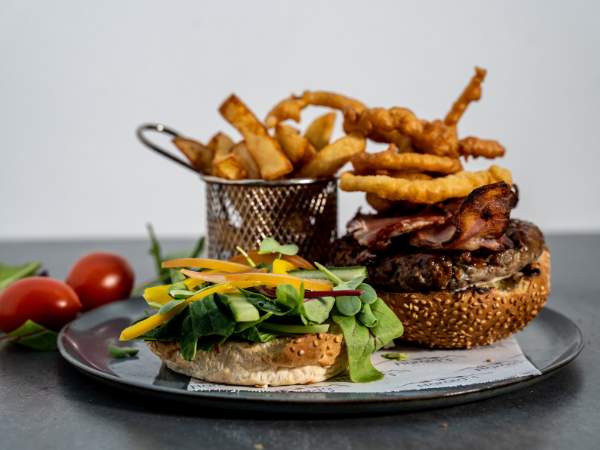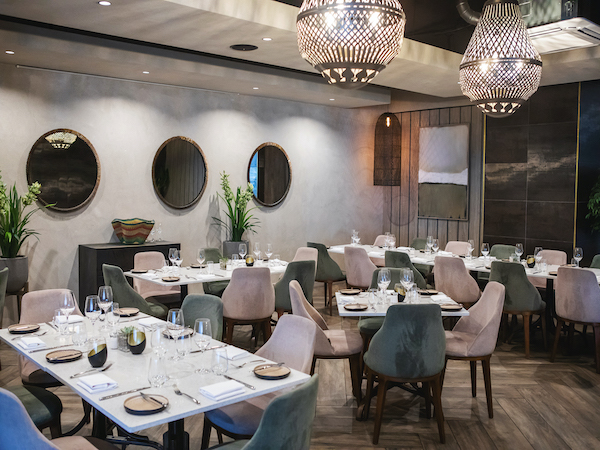News
Ever wanted to visit the world’s most remote restaurants? An award-winning chef did just that
Wednesday, April 12th, 2023Chef Kristen Kish is no stranger to TV. She was the winner of the tenth season of Top Chef and has hosted 36 hours on the Travel Channel and Iron Chef: Quest for an Iron Legend.
Now, her new docuseries sees her visiting some amazing venues as she travels to distant corners of the Earth to taste exotic delicacies, and goes behind the scenes to prepare some of her own. She told Eat Out about her incredible adventures.
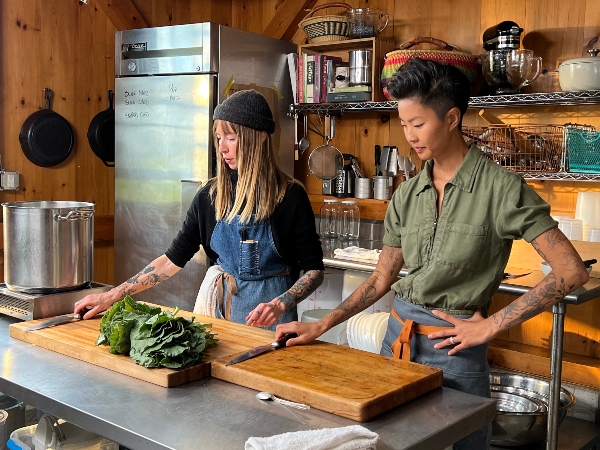
Chefs Carolynn Ladd and Kristen Kish get ready to cook together in the kitchen at Ladd’s restaurant in North Haven, Maine. (National Geographic/Missy Bania)
Why did you want to be involved with this TV programme?
I think first and foremost because it was with National Geographic. It’s an iconic brand that I’ve trusted since I was a kid. I think we can all find comfort in doing things that are slightly outside of our comfort zone when we know it’s backed by a well-trusted source. So when I was approached, I said yes without hesitation. I mean, absolutely!
You do some pretty adventurous things, such as walk in close proximity to polar bears and abseil a waterfall. Were you ever a little bit scared?
The adventure layer on top of it all was highly entertaining for me. I have always been a bit of an adventurer. I always knew that people were planning things on the other side on my behalf to make sure I was safe.
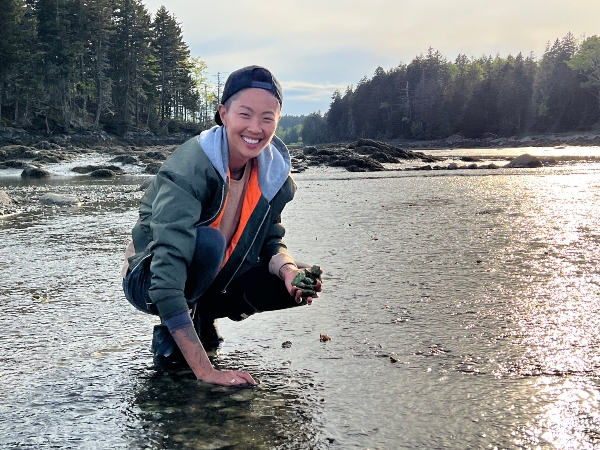
Chef Kristen Kish poses with freshly caught oysters in hand at the estuary in North Haven, Maine. (National Geographic/Missy Bania)
You tasted incredible meals, ranging from reindeer tongue to buttermilk biscuits topped with lobster salad to kimchi sorbet. What was the most memorable food moment?
The thing about food is it’s incredibly subjective. Something someone else is used to may not be the same as the food you grew up eating. When I taste something it takes me a minute to wrap my brain around it. It’s not necessarily that immediate reaction of “oh my gosh, this is delicious to me”. What I find most intriguing and interesting about food is trying something that maybe is new to me and getting that feeling of “I like this but I’m not sure why”. For me that’s what I love, because it kind of catches you off guard and it makes you think about food differently, but at the same time it can also be familiar and grounding. There’s always this connecting force, so no matter which end of the spectrum you’re on, there is a conversation to be had because of this one singular bite of food.
Did you find any interesting new cooking techniques or ways of preparing things along on the way?
I like to think that I can mesh well into any kitchen that’s willing to have me and I can find a common ground of learning what’s new and also sharing what’s familiar. I can’t say that I necessarily learnt any new techniques because I think we’re all coming with a baseline of the same toolbox of techniques. What I did learn was the sense of creativity and ingenuity of the different chefs. I loved hearing the thought process out loud of how someone gets from point A to point B. You’re like, wait a second, I didn’t even think about it that way. I was constantly having my eyes opened.
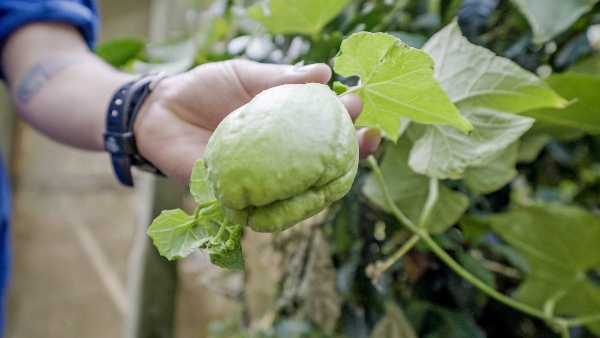
Restaurant owner and Chef Rolando Chamorro holds a chayote squash he will use to prepare a vegan ceviche at his restaurant in Hacienda Mamecillo, Boquete, Panama. (National Geographic for Disney/Missy Bania)
You do quite a bit of foraging to find natural and indigenous ingredients. Was sustainability always of concern?
Absolutely! A lot of times you’re taking products and actually helping the environment because they are an invasive species or are overpopulated in an area, whether that be a plant or an animal. Sustainability is obviously not taking something that’s already depleted but it’s also about choosing the things that are readily available and helping your surroundings by using these products.
Why would you tell people to watch the show? From your perspective, what makes it special?
With the name of the show being Restaurants at the End of the World and me being a chef, it implies that the show is very much about food, which it is. However, I think the thing that even eclipses the food and restaurants is the connection and community of people. Whether or not you like food and restaurants, everyone has the sense of curiosity about someone else and how they operate and how they do something that’s difficult. It’s really about understanding what you can take and learn from one another.
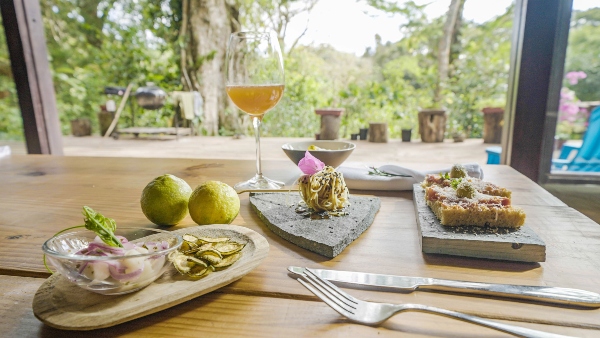
A glass of wine accompanies vegan chayote ceviche and other dishes served at Chef Rolando Chamorro’s restaurant at Hacienda Mamecillo, Boquete, Panama. (National Geographic for Disney/Missy Bania)
Watch Restaurants at the End of the World on National Geographic (DStv Channel 181, StarSat 220) on Wednesdays at 8.10pm.









